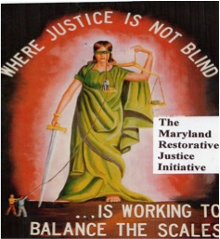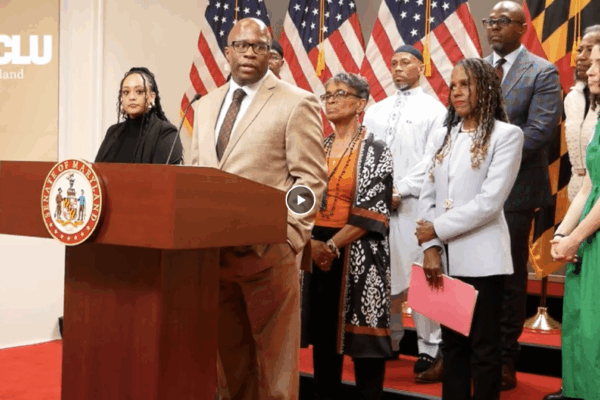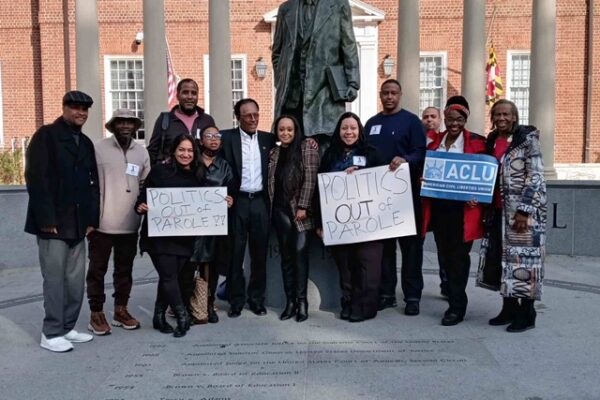ANNAPOLIS, MD – Today is a great, long-awaited day for fairness and racial justice, as the Maryland General Assembly voted to override a veto of SB 202, a bill to fix the state’s broken parole system so that Marylanders serving life sentences finally have a chance to earn release. After a difficult, decade-long effort, this new law will correct an injustice that has caused Marylanders who have been repeatedly, wrongfully denied parole by Governors, even though they have the right to earn release. They, their families and their communities deserve this important reform.
Quote from Calvin McNeill: “Today, we are one step closer to freedom. I spent 39 years incarcerated for something I did at 16 years old and was denied three times by Maryland Governors. On behalf of Maryland lifers, we truly thank everyone for their support in helping us in this fight for justice and hope.”
Quote from Walter Lomax, founder and executive director of the Maryland Restorative Justice Initiative: “We have been working on this issue close to 30 years, and are elated that it has finally passed. It will give those men and women affected by its passage a meaningful opportunity at release.”
Quote from Martina Hazelton, co-founder of the Lifers Family Support Network: “FSN members are really excited about the removal of the Governor from the approval process for those serving life sentences which will make parole consideration a meaningful opportunity and restore hope to so many that have waited decades for a second chance.”
Quote from Sonia Kumar, senior staff attorney, ACLU of Maryland: “Today, our State moves a little closer to a system of justice that recognizes the best in us: that redemption is possible. We have seen how much lifers contribute to our communities when given the opportunity, and we look forward to seeing people who have worked really hard to earn their second chance come home.”
Quote from Yanet Amanuel, interim public policy director, ACLU of Maryland: “Injecting politics into the parole process has wrongly turned life with parole sentences into life sentences. We’re extremely pleased to see that both the chambers have focused on the facts of the issue, prioritized second chances that these folks have earned, and rejected the misguided tough on crime propaganda that historically has not led to effective crime and violence reducing strategies.”
Maryland has the starkest racial disparities of any state’s prison population: 77 percent of those serving life with parole sentences are Black and are subjected to a highly politicized parole process.
The Life Imprisonment - Parole Reform bill [SB 202] will finally take the politics out of parole. Maryland’s current law gives sole authority to release those serving a life with parole sentence to the Governor, which has resulted in only a small fraction of those given life with parole sentences being released, even when they have earned release and received approval from the Maryland Parole Commission, which involves a rigorous and lengthy review process that includes multiple hearings, assessments, and a vote of the full Commission.
This bill has been introduced nearly every year for more than a decade. Finally, the Maryland General Assembly has taken action and started to restore a functional parole system.
We are grateful to Senator Delores Kelley for her determined leadership on this important issue. We also recognize the many leaders who have championed it in the past, including former Delegates Clarence “Tiger” Davis and Salima Marriott; former Senator Nathaniel McFadden; Delegates Curt Anderson, Luke Clippinger, and Pam Queen; and Senator Jill Carter.
In addition, this past March there was an important victory on the road to fixing the state’s broken parole process for Marylanders given life sentences, when the Maryland Board of Public Works approved a legal settlement that requires the Maryland Parole Commission, Division of Correction, and Governor to adopt new regulations and policies to help rebuild Maryland’s parole process for those sentenced as children to life imprisonment. Learn more, here.
###
Related Content

Settlement Reached in Lawsuit Defending Constitutional Rights of Marylanders Sentenced to Life with Parole as Children

Anthony Muhammad - Maryland Second Look Act Press Conference Remarks
Stay Informed
Sign up to be the first to hear about how to take action.
By completing this form, I agree to receive occasional emails per the terms of the ACLU’s privacy statement.
By completing this form, I agree to receive occasional emails per the terms of the ACLU’s privacy statement.


